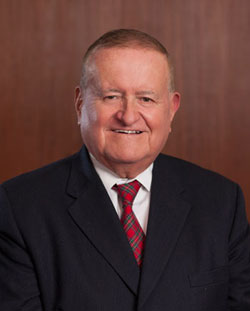March 2018 • Volume 106 • Number 3 • Page 10
Thank you for viewing this Illinois Bar Journal article. Please join the ISBA to access all of our IBJ articles and archives.
President's Page
America’s #MeToo Moment
Victims of sexual harassment are speaking out as never before.

Though sexual harassment is a newsmaking topic these days, efforts to address it are not new. In 1980 the Equal Employment Opportunity Commission (EEOC), the federal agency that enforces Title VII, issued guidelines defining sexual harassment as a form of sex discrimination. In 1981, a federal appeals court agreed with the EEOC's position that Title VII liability can arise from a "sexually hostile work environment" even if the aggrieved employee did not lose any tangible job benefits as a result.
Here in Illinois, it is now law that all units of government - including township boards and school boards, to name two of many - must have a sexual harassment policy and a designated compliance officer to receive any complaints.
Sexual harassment claims are not easy to prove, however. Courts have stated that to be actionable, sexual harassment must be "severe or pervasive" enough to alter the conditions of a victim's employment and create an "abusive working environment."
There has been a cultural watershed in recent months as the #MeToo movement has dominated the headlines. We've heard numerous sexual harassment allegations against high-profile figures in Hollywood, the news media, sports, and politics.
Recently, Michigan State University Athletic Director Mark Hollis retired in the wake of the conviction and sentencing of sexual abuser Larry Nassar, an MSU physician. Closer to home, suburban Chicago youth volleyball coach Rick Butler has been banned from USA Volleyball based on allegations of sexual misconduct. The Today Show has fired two employees, Billy Bush and Matt Lauer, based on inappropriate behavior.
Billionaire casino mogul Steve Wynn of Wynn Resorts made a personal payment of $75 million to settle a sexual harassment lawsuit brought by an employee manicurist who alleged he forced her to have sex with him. Dozens of other employees complained of his behavior, and he recently resigned as Republican National Committee finance chairman.
Interestingly, the proportion of non-union private-sector employees covered by mandatory arbitration clauses has more than doubled to 56 percent since the early 2000s, according to a study by a Cornell University professor.
Many in the business community prefer arbitration as a cheaper and faster alternative to the courts. Critics, including plaintiff attorneys, complain that arbitration is secretive and that arbitrators aren't required to follow the Federal Rules of Civil Procedure. They note that arbitration imposes tighter limits on pre-trial discovery and that cases are hard to appeal. Some federal lawmakers are pushing to restrict arbitration in sexual harassment cases.
While the litigation process is far from perfect, the courtroom can be a place of vindication and healing. Michigan Judge Rose Marie Aquilina, who sentenced Larry Nassar, was hailed by many as a protector of the gymnasts who stared down their abuser. She called the women who spoke out "the bravest people who ever testified in my courtroom." One gymnast testified "this is what happens when adults in authority do not respond properly and promptly to disclosures of sexual assault." The judge ended by saying, "Your sister survivors and I thank you." Nassar, who molested nearly 100 women, received a sentence of up to 175 years.
As Olympic gymnast Aly Raisman testified in court, "the tables have turned. We are here and we have our voices and we are not going anywhere." Let us hope the new empowerment of today's victims to speak out leads to fewer victims in the future.
ISBA's statewide outreach continues
In ISBA news, our board of governors met in Rockford for its first meeting of 2018. A reception was held the night before at the Radisson Hotel, and 17th Judicial Circuit Chief Judge Eugene G. Doherty was present, along with WCBA Executive Director Holly Nash (see photo on page 58). On March 23 our board will convene in Collinsville in conjunction with a joint meeting of the Madison and St. Clair County Bar Associations. On May 11 we will meet in Springfield.
These meetings reflect my effort to assure that the ISBA is represented at bar activities around the state. It is a pure delight to attend these meetings. The members of the various county bars have been extremely welcoming, something I truly appreciate. I have also spoken at five CLE programs during my presidential term, which has enabled me to meet with a wide range of ISBA members. We must always be mindful that we are a statewide organization.

